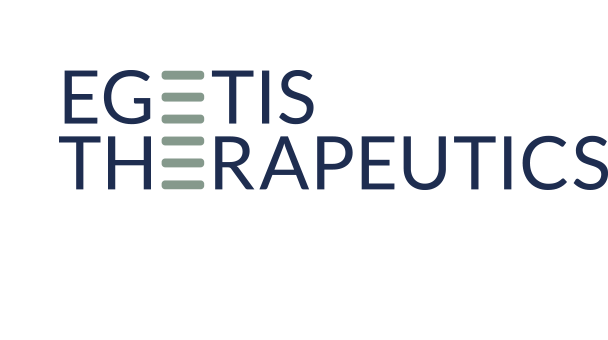First patient included in Phase I study aiming at supporting expansion of global Phase III program for PledOx® to include Asian patients
December 1, 2017
PledPharma AB Company Announcement First patient included in Phase I study aiming at supporting expansion of global Phase III program for PledOx® to include Asian patients Stockholm, 2017-12-01 08:00 CET (GLOBE NEWSWIRE) -- PledPharma AB today announces that the first set of patients have been included in the SUNCIST Phase I study evaluating safety, tolerability and pharmacokinetics of PledOx® in Japanese and Caucasian Healthy Volunteers. PledPharma and its partner for development and commercialization in Asia, Solasia Pharma K.K., aim at expanding the planned Phase III program to include Asian patients, subject to regulatory consultation. PledOx® is a drug candidate in development for the prevention of chemotherapy induced peripheral neuropathy in colorectal cancer patients. A global Phase III program is anticipated to be initiated at the end of 2017, and top line results are expected during 2020. The Phase I study will include up to 24 Japanese and 24 Caucasian healthy volunteers, which will be randomly assigned to study treatment with PledOx® in a single dose of 2-, 5- or 10 µmol/kg, or placebo. The objective of the study is to gain sufficient safety, tolerability and pharmacokinetic data for an expansion of the Phase III program to include Asian patients. PledPharma and Solasia recently announced that the companies have entered a license agreement pertaining to the clinical development and commercialization of PledOx® in Japan, China, Hong Kong, Macau, South Korea and Taiwan. Under the terms of this agreement, PledPharma grants exclusive development and commercialization rights to PledOx® in the territories mentioned and Solasia will pay upfront, development, regulatory and sales milestones of up to ~USD 83 million (SEK 700 million).* In addition, Solasia will pay industry standard royalty rates on sales applicable for a deal pertaining to an in-licensed asset in Phase III development. Solasia will also fully finance an expansion of the Phase III program to include Asian patients subject to regulatory consultations. “The initiation of this first clinical trial in Asian patients provides a kick-start in PledPharma’s and Solasia’s recently announced ambition to develop and commercialize PledOx® for the major Asian markets. We will work closely with Solasia and local regulatory bodies to facilitate a swift expansion of the Phase III program, and the data from the now commenced trial will be key during this process” said Nicklas Westerholm, CEO, PledPharma. * The total value of upfront and milestone payments is up to JPY 9.3 billion. The amount given in USD and SEK is subject to exchange rate. For more information, please contact: Nicklas Westerholm, CEO, phone: +46 73 354 20 62 [email protected] About PledOx® PledOx® is a “first in class” drug candidate developed to provide patients, that are treated adjuvantly or for metastatic colorectal cancer, prevention against the nerve damage that can occur in conjunction with chemotherapy treatment. The results from a completed Phase IIb trial (PLIANT), where patients with metastatic colorectal cancer were treated with the chemotherapy combination FOLFOX and PledOx®, indicates that the patients who received PledOx® had a lower risk than the placebo group to suffer from nerve damage during the chemotherapy. The presence of the investigator reported sensory nerve damage, the primary endpoint, was after treatment 38% lower in the group of patients treated with PledOx® compared with the placebo group (p = 0.16). This was not statistically significant, but a difference of this magnitude is considered to be clinically relevant. After completion of chemotherapy, the patient-reported incidence of moderate and severe neuropathy was 77% lower in patients treated with PledOx® compared to the placebo group (exploratory analysis; p = 0.014). This is considered valuable for the success of the forthcoming POLAR studies, where patient-reported symptoms after completion of treatment will be the primary efficacy parameter. No apparent negative effect on the efficacy of the cancer treatment was observed. About chemotherapy induced peripheral neuropathy (CIPN) Peripheral neuropathy symptoms are caused by damages to sensory nerves, most commonly in hands and feet. Certain chemotherapies, including oxaliplatin, can cause such damages, which is then called chemotherapy induced peripheral neuropathy (CIPN). This can be a debilitating adverse reaction of the cancer treatment and may occur at any time after the initiation of chemotherapy. The symptoms often increase as the chemotherapy treatment continues and may often causes discontinuation of the chemotherapy. In many patients, the symptoms are resolved after discontinuing the chemotherapy, but up to 20-30% of the patients have sustained symptoms such as numbness, tingling and pain in hands and feet. Patients with CIPN may have difficulties with fine motor skill, such as buttoning buttons, challenges using a computer key board and become hypersensitive to cold. The sensory loss in the feet’s may increase the risk of falls. There is currently no approved drug to prevent or treat CIPN. About PledPharma PledPharma develops new drugs that protect the body against oxidative stress – a potentially debilitating and sometimes life-threatening condition that can be caused by chemotherapy treatment and following acetaminophen (paracetamol) overdose. The company's most advanced project PledOx® is being developed to reduce nerve damage associated with chemotherapy. A phase IIb study has been conducted and will serve as the basis for the continued development. The drug candidate Aladote® is being developed to reduce the risk of acute liver failure associated with acetaminophen poisoning. PledPharma (STO: PLED) is listed on Nasdaq First North. Erik Penser Bank is the company’s Certified Adviser (tel +46 8 463 80 00). For more information, see http://www.pledpharma.se/

